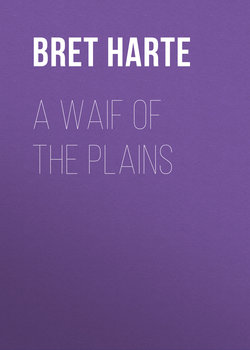Читать книгу A Waif of the Plains - Bret Harte - Страница 5
CHAPTER V
Оглавление“You didn’t say ‘Stay, father, stay,’ enough, Kla’uns,” said Susy critically. Then suddenly starting upright in Mrs. Peyton’s lap, she continued rapidly, “I kin dance. And sing. I kin dance High Jambooree.”
“What’s High Jambooree, dear?” asked Mrs. Peyton.
“You’ll see. Lemme down.” And Susy slipped to the ground.
The dance of High Jambooree, evidently of remote mystical African origin, appeared to consist of three small skips to the right and then to the left, accompanied by the holding up of very short skirts, incessant “teetering” on the toes of small feet, the exhibition of much bare knee and stocking, and a gurgling accompaniment of childish laughter. Vehemently applauded, it left the little performer breathless, but invincible and ready for fresh conquest.
“I kin sing, too,” she gasped hurriedly, as if unwilling that the applause should lapse. “I kin sing. Oh, dear! Kla’uns,” piteously, “WHAT is it I sing?”
“Ben Bolt,” suggested Clarence.
“Oh, yes. Oh, don’t you remember sweet Alers Ben Bolt?” began Susy, in the same breath and the wrong key. “Sweet Alers, with hair so brown, who wept with delight when you giv’d her a smile, and—” with knitted brows and appealing recitative, “what’s er rest of it, Kla’uns?”
“Who trembled with fear at your frown?” prompted Clarence.
“Who trembled with fear at my frown?” shrilled Susy. “I forget er rest. Wait! I kin sing—”
“Praise God,” suggested Clarence.
“Yes.” Here Susy, a regular attendant in camp and prayer-meetings, was on firmer ground.
Promptly lifting her high treble, yet with a certain acquired deliberation, she began, “Praise God, from whom all blessings flow.” At the end of the second line the whispering and laughing ceased. A deep voice to the right, that of the champion poker player, suddenly rose on the swell of the third line. He was instantly followed by a dozen ringing voices, and by the time the last line was reached it was given with a full chorus, in which the dull chant of teamsters and drivers mingled with the soprano of Mrs. Peyton and Susy’s childish treble. Again and again it was repeated, with forgetful eyes and abstracted faces, rising and falling with the night wind and the leap and gleam of the camp fires, and fading again like them in the immeasurable mystery of the darkened plain.
In the deep and embarrassing silence that followed, at last the party hesitatingly broke up, Mrs. Peyton retiring with Susy after offering the child to Clarence for a perfunctory “good-night” kiss, an unusual proceeding, which somewhat astonished them both—and Clarence found himself near Mr. Peyton.
“I think,” said Clarence timidly, “I saw an Injin to-day.”
Mr. Peyton bent down towards him. “An Injin—where?” he asked quickly, with the same look of doubting interrogatory with which he had received Clarence’s name and parentage.
